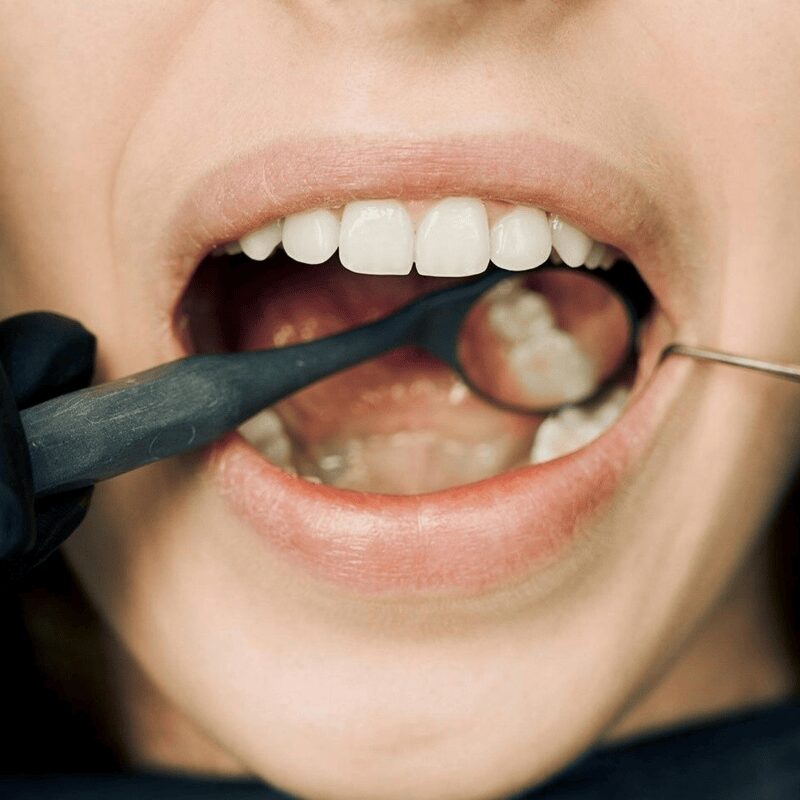Dental anxiety, manifesting as everything from mild apprehension to severe dentophobia, impacts millions globally, preventing many from seeking essential dental care. This fear can significantly compromise not only oral health but overall well-being. Research indicates that up to 20% of individuals avoid dentists altogether due to these fears, leading to severe dental and systemic health issues down the line.
Recognizing the critical nature of this issue, Advanced Dental Care of Indiana is dedicated to providing comfort dentistry options assisting patients who struggle with dental anxiety by fostering an environment that emphasizes empathy and understanding. Advanced Dental Care presents to you a comprehensive guide to conquering Dental Fear, and Dental Anxiety management with the aim to equip you with the knowledge and strategies needed to manage your dental anxiety effectively. Through exploring the roots of dental fear, discussing proactive management strategies, and highlighting the role of gentle dentistry, this guide provides the tools for a more positive and less stressful dental care experience.
Understanding Dental Anxiety and Dentophobia
Definition of dental anxiety and how it differs from dentophobia
Dental anxiety and dentophobia are terms often used interchangeably, but they represent different levels of fear related to dental care. Dental anxiety refers to the apprehension or stress that people may feel when thinking about or undergoing dental procedures. This anxiety can range from slight nervousness to more pronounced unease but doesn’t completely prevent individuals from visiting the dentist. In contrast, dentophobia, or dental phobia, is a more severe condition characterized by an intense, irrational fear of dental care that leads to complete avoidance of dental visits.
Statistics and facts about the prevalence of Dentophobia
The prevalence of these conditions is significant and impacts a large portion of the population. According to research, about 80% of individuals are affected by dental anxiety severe enough to avoid going to the dentist altogether, while approximately 5-10% suffer from dentophobia. These statistics highlight the importance of addressing these fears, as avoiding professional dental care can lead to serious oral health complications, including gum disease, tooth loss, and associated systemic health problems.
Psychological and physiological impacts of dental anxiety
The impacts of dental anxiety and dentophobia extend beyond just oral health. Psychologically, these fears can create a cycle of avoidance that only increases the anxiety associated with dental care. This cycle can be triggered by thoughts of pain, negative past experiences, or the embarrassment of having poor oral health. Physiologically, dental anxiety can manifest in symptoms such as increased heart rate, sweating, and even panic attacks in more severe cases. These responses are not just distressing but can also complicate the process of receiving necessary dental treatments.
Moreover, the physiological stress responses linked to dental anxiety can have broader health implications. Stress and anxiety can weaken the immune system, making it harder to fight infections, including those that might originate in the mouth and potentially spread to other parts of the body. Given these comprehensive impacts, understanding the nuances between dental anxiety and dentophobia is crucial for both patients and dental care providers to develop effective management strategies that address the specific needs of those affected by these conditions.
Common Triggers of Dental Anxiety
Specific Dental Procedures
Dental anxiety can be triggered by a variety of factors that differ from person to person. Among the most common triggers are specific dental procedures that are often perceived as painful or invasive, such as drilling and injections. Scientific investigation reveals that procedures can provoke intense anxiety due to the fear of pain, the sound of the drill, or the sight of the needle, which can be daunting even at the thought.

Environmental factors
Environmental factors within a dental clinic also play a significant role in triggering dental anxiety. The distinct clinical smell of disinfectants, the sound of dental tools at work, and even the sight of the dental chair can automatically evoke a fear response in anxious patients. These sensory experiences can instantly remind someone of past visits and potentially unpleasant procedures, setting off a cycle of anxiety.
Traumatic dental experiences and their long-term effects
Past traumatic dental experiences are particularly influential in the development of dental anxiety. Negative experiences, especially those in childhood or during one’s first dental visit, can leave a lasting impression. These memories can form the basis of ongoing fear, making subsequent visits to the dentist fraught with anxiety.
Role of Anticipation and negative self-talk in escalating fear
Anticipation of a dental appointment can also escalate anxiety. The dread that builds up in the days leading to a dental visit can be exacerbated by negative self-talk. Patients often imagine worst-case scenarios and convince themselves that their experience will be painful or unbearable. This anticipation and fear can significantly heighten the actual anxiety felt during the appointment, making management of these triggers crucial for those suffering from dental anxiety.
How to manage Dental Anxiety?
Managing dental anxiety effectively involves a combination of psychological interventions, sedation methods, and personal coping strategies. Here’s a detailed guide on how you can overcome dental anxiety.
Cognitive Behavioral Therapy techniques
Research suggests that cognitive Behavioral Therapy (CBT) is one of the most effective psychological approaches for addressing dental anxiety, especially among children. Tailored CBT techniques help patients challenge and change their negative thoughts about dental care, enabling them to approach dental visits with less fear. This therapy focuses on both cognitive and behavioral aspects, helping to reduce anxiety through structured, systematic exposure to dental procedures and the development of coping mechanisms.
Sedation Dentistry: types and how they work
Correspondingly, research finds that sedation dentistry plays a crucial role in managing dental anxiety by using various types of sedatives to calm patients during dental procedures. Options range from mild sedatives like nitrous oxide, aka the laughing gas which helps patients relax while remaining conscious, to moderate sedation using oral or IV drugs, which makes patients drowsy but awake. For extreme cases, general anesthesia may be used, rendering the patient completely unconscious. These sedation methods are tailored to the patient’s level of anxiety and the complexity of the dental work to be done.
Mindfulness and relaxation techniques
In addition to these methods, mindfulness and relaxation techniques can significantly alleviate anxiety both before and during dental visits. Techniques such as deep breathing, progressive muscle relaxation, and guided imagery can help patients control their anxiety in real-time, reducing the physiological symptoms associated with fear.
Practical tips for gradually desensitizing oneself to dental environments
Furthermore, gradual desensitization can help individuals become more comfortable in dental environments. This involves slowly and repeatedly exposing oneself to the dental setting in a controlled way, starting with simpler, less fearful aspects and building up to more challenging exposures. This technique helps to lessen the fear response over time, making dental visits more manageable. By combining these strategies, patients can significantly reduce their dental anxiety, making their necessary visits less stressful and more routine.

The Role of Gentle Dentistry in Alleviating Fear
Gentle dentistry is a patient-centered approach that focuses on minimizing fear and discomfort during dental visits. This method hinges on creating a calm and reassuring environment, coupled with empathetic communication and clear, transparent processes that help patients understand exactly what to expect during their treatment.
At Advanced Dental Care, dentists employ this philosophy extensively by using gentle handling techniques, offering detailed explanations before procedures, and maintaining open lines of communication to reassure and empower patients.
Technological advancements in dentistry that reduce discomfort and fear
Additionally, technological advancements in dentistry play a significant role in alleviating fear. Innovations such as quieter drills, less invasive techniques, and digital imaging reduce the physical discomfort and psychological stress associated with dental care. These technologies, combined with a gentle approach, ensure that visits are as pain-free and anxiety-free as possible, helping patients maintain regular dental care without fear.
Preparation and Communication: Key to Anxiety-Free Dentistry
Preparation and effective communication are foundational for ensuring anxiety-free dentistry. Mentally and physically preparing before a dental visit can significantly reduce anxiety. This might include practicing relaxation techniques, such as deep breathing or visualization, and understanding the specific procedures you will undergo. Physical preparation could involve getting a good night’s sleep and avoiding caffeine before your appointment.
Effective communication with your dental team is crucial. It’s important to express your fears openly with your dentist, as this can lead them to adjust their approach, such as by slowing down the procedure or providing breaks as needed. Knowing the detailed treatment plan also helps mitigate fear by removing the element of surprise; understanding each step of the process can make the experience feel more manageable.
When choosing a dental practice, look for clinics that specialize in treating anxious patients. Practices like Advanced Dental Care of Indiana emphasize a gentle approach for comfortable dentistry and may offer various sedation options. Reviews and recommendations can be a valuable resource in finding a dentist whose approach to care aligns with your needs.
Lifestyle and Supportive Measures
Daily routines and habits
Incorporating lifestyle changes and supportive measures can also play a significant role in managing dental anxiety. Regular physical activity, a consistent sleep schedule, and mindfulness practices can all help lower overall anxiety levels. Scientific research confirms that a diet rich in fruits, vegetables, and omega-3 fatty acids can improve both oral health and overall stress management.
Importance of a support system
Having a supportive network is invaluable. Discuss your dental appointments and your progress in managing dental anxiety with close friends or family members who can offer encouragement and accompany you to your appointments if needed.
When to seek professional help for dental anxiety?
Finally, if your dental anxiety is severe, consider seeking professional help. A psychologist specializing in cognitive-behavioral therapy can provide strategies specifically tailored to conquer dental fears, facilitating a more positive dental care experience. By integrating these preparatory and supportive measures, you can transform how you experience dental care, turning it into a far less daunting part of your health regimen.

Conclusion
In this detailed guide, we’ve examined the multifaceted issue of dental anxiety and dentophobia, detailing triggers and providing effective management strategies. We explored how gentle dentistry techniques can reduce fears, the crucial roles of preparation and communication, and lifestyle changes that contribute to better dental health. Advanced Dental Care is dedicated to supporting you as you tackle your dental fears, ensuring a smoother journey to dental wellness.
We urge you to begin your journey to overcoming dental anxiety by contacting us. Each journey is unique, and by sharing your experiences, you not only aid your own recovery but also help others with similar struggles. Feel free to engage with our community through comments or questions below. Take charge of your oral health by booking an appointment with us to assess your oral condition, identify causes of discomfort, and establish a treatment plan to alleviate your dental anxiety.
For those overwhelmed by anxiety, consulting a psychologist could further enhance your strategy, providing robust support alongside your dental care. Don’t let fear delay your dental care—contact Advanced Dental Care and take a positive step towards overcoming your fears today.

